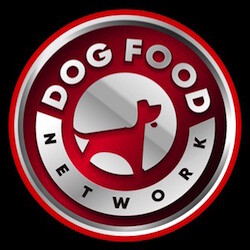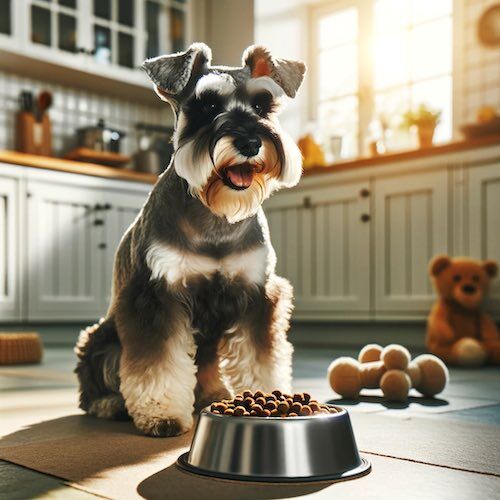Miniature Schnauzers, those charming companions with their signature whiskers and feisty personalities, deserve a diet that keeps them active, healthy, and thriving through the years. With tailored nutrition, you can help your Schnauzer live their best life! Understanding their dietary needs and knowing which top-tier brands cater to them makes all the difference.
The Best Dog Food for Miniature Schnauzers: Top Brands, Nutritional Needs, and Making the Right Choices
What Makes a Dog Food ‘Schnauzer-Approved’?
Miniature Schnauzers, despite their compact size, have robust nutritional requirements and some breed-specific considerations:
Prone to Bladder Stones: Certain types of bladder stones (struvite crystals and calcium oxalate stones) are more common in Miniature Schnauzers. Some specialized diets can help minimize their formation.
Pancreatitis Risk: This breed has a higher tendency to develop pancreatitis (inflammation of the pancreas). A moderate-fat diet alongside regular veterinary care plays a protective role.
Lean and Active: Schnauzers love to play and have lean builds. Their ideal food supports strong muscles without encouraging excess weight gain.
Skin Sensitivities: Some Schnauzers have sensitive skin or are prone to allergies. Selecting foods prioritizing gentle ingredients and sometimes focusing on limited-ingredient diets makes a big difference for their comfort.
Quality Ingredients Matter: Like all breeds, choosing a food based on whole-food ingredients with minimal additives and fillers benefits Schnauzers greatly. Their stomachs, skin, coat, and overall health depend on it.
Top-Tier Dog Food Brands for Miniature Schnauzers
While big-name brands offer quality nutrition, understanding their specialties empowers you to find the perfect fit for your Schnauzer. Let’s delve deeper into what makes some brands stand out:
Royal Canin
Their Miniature Schnauzer Adult formula isn’t just good dog food, it addresses a common breed concern. Specifically tailored mineral levels support urinary health, potentially helping minimize bladder stones Schnauzers can be prone to. Beyond this, Royal Canin’s commitment to nutrition tailored to different life stages is impressive. Whether you have a Schnauzer puppy, an active adult, or a healthy senior, finding a fitting Royal Canin option is relatively easy.
Hill’s Science Diet
This trusted brand excels in formulas designed to combat various health challenges. Their ‘Sensitive Stomach & Skin’ line utilizes highly digestible ingredients, gut-friendly prebiotics, and skin-soothing nutrients like omega-3 fatty acids. If your Schnauzer grapples with allergies or sensitivities, this dedicated approach holds immense value, providing potential relief they couldn’t find in a standard food.
Nulo
Whether you prefer grain-free options or not, Nulo prioritizes quality meat proteins as the stars of their recipes. Championing single protein sources like salmon, lamb, or turkey helps keep things simple for sensitive stomachs. This lean protein emphasis supports those energetic Schnauzer muscles but minimizes unhealthy weight gain. Plus, the addition of probiotics boosts healthy digestion, a welcome bonus for any pup!
Blue Buffalo
Blue Buffalo shines for its wide range of choices – puppies, seniors, hearty or sensitive, they have something to consider. The classic Life Protection Formula covers all bases and features their unique LifeSource Bits. These small kibble additions pack a punch with vitamins, minerals, and powerful antioxidants for holistic support. Battling food sensitivities? Explore their Limited Ingredient Diets. These often focus on protein-rich novel ingredients less likely to irritate an uneasy stomach.
Purina Pro Plan
If weight management is a persistent struggle for your Schnauzer, Purina Pro Plan’s weight support formulas offer specialized help. It goes beyond the typical “diet” kibble – you’ll find options to support the different life stages, too. Sensitive skin and tummy troubles? Check out their formulas built for gentle digestion, alongside omega-6 fatty acids and zinc for skin and coat health. They understand your Schnauzer’s challenges aren’t one-size-fits-all, and many Pro Plan formulas reflect that.
Wellness Complete Health
With Wellness, the focus is on real, whole foods you can recognize. Ingredients lists are refreshingly free of mystery meat by-products, corn, wheat, or artificial additives. The inclusion of both prebiotics and probiotics emphasizes internal health – crucial for overall well-being. Omegas from sources like flaxseed keep that Schnauzer coat soft and vibrant. A solid choice for dog owners who prioritize natural, recognizable nutrition.
Open Farm
Open Farm appeals to owners prioritizing animal welfare, sustainability, and transparency. Emphasis on pasture-raised meats and non-GMO produce aligns with the ethics of many pet parents. For Schnauzers who flourish on grain-free or ancient grain options (like quinoa or oats), Open Farm’s formulas deliver balanced nutrition rooted in wholesome ingredients.
Beyond the Brand: Additional Decision-Making Factors
Selecting the best dog food for your Schnauzer often leads to choices about the food’s format itself. Let’s dive deeper into the pros, cons, and considerations of each feeding style:
Kibble: Convenient and Teeth-Friendly
-
The Perks: Dry kibble typically reigns supreme in convenience. It’s easy to measure, store, and less messy than other options. Plus, the satisfying crunch from chewing kibble is like a natural dog toothbrush, helping to remove plaque and promote dental health.
-
Things to Consider: Kibble is lower in moisture than many other options. If your Schnauzer isn’t a big drinker, this could pose an issue for their hydration. Also, not all kibble brands are created equal, so prioritize quality ingredients for optimal nutrition.
Wet Food: Moisture-Rich Mealtime
-
The Perks: Canned or pouched wet food explodes with moisture. For pups hesitant to drink enough, this can significantly boost hydration, which is key to kidney, urinary tract, and overall health. Additionally, many dogs find the aromas and textures of wet food highly palatable.
-
Things to Consider: Wet food tends to be pricier than kibble per serving. Additionally, you need proper hygiene for unused portions, as open wet food spoils quickly if unrefrigerated.
Mixed Approach: When Variety Wins
Many dog owners find success using a balanced mix of kibble and wet food! This option lets your Schnauzer experience the benefits of both and helps keep mealtimes stimulating. You might incorporate a scoop of wet food as a “topper” for kibble or offer specific meals as completely wet. Experimentation is key to finding the ratio your pup prefers!
The Rise of Raw and Fresh Food
-
The Appeal: Diets focusing on raw or minimally processed fresh foods boast whole ingredients their proponents hail as “closer to nature”. Supporters often cite improvements in energy and coat quality for dogs who transition to these styles of feeding.
-
Proceed with Caution: Extreme care is paramount with raw and fresh feeding. Safety measures are critical to prevent foodborne illness for both yourself and your Schnauzer. Balancing these diets for complete nutrition is complex, so seek advice from a veterinarian who specializes in this area.
The DIY Dog Chef: Proceed with Extreme Caution
While controlling every ingredient going into your Schnauzer’s food sounds wonderful, homemade diets carry hefty risks. Ensuring every micronutrient, vitamin, and mineral is balanced without deficiencies takes specialized knowledge to avoid severe health consequences for your dog. This path shouldn’t be taken without a seasoned veterinary nutritionist on board.
The Power of Informed Choice: You Are Your Schnauzer’s Advocate
While popular dog food brands offer good starting points, choosing the absolute best food for your Schnauzer means digging deeper and looking beyond labels. To truly provide optimal nutrition, focus on tailoring the diet to your dog’s unique needs and health circumstances. Here’s how to go the extra mile in finding the perfect food for your furry companion:
Your Veterinarian: Your Most Valuable Resource
No one understands your Schnauzer’s health better than your trusted veterinarian. Their recommendations are invaluable, especially when navigating sensitivities, allergies, weight management, past bouts of pancreatitis, or other health concerns. A vet checkup to establish your dog’s baseline health can greatly inform your dog food choices. Here’s what to discuss:
- Dietary Restrictions: Does your Schnauzer have any diagnosed food allergies or sensitivities? Your vet can recommend hypoallergenic food options or guide you towards diets formulated with limited ingredients.
- Special Requirements: Underlying health conditions might necessitate a specific diet. Schnauzers can be prone to pancreatitis, so your vet might advise a specially formulated low-fat food.
- Weight Management: Discuss your dog’s current weight and whether adjustments are needed. Your vet can help you select a food designed to prevent obesity or one for weight loss.
The Ingredient List: Your Decoding Guide
Ingredients lists on dog food often look like a mystery, but don’t let them intimidate you! With a bit of practice, you can learn to spot the good, the bad, and the questionable when it comes to canine nutrition.
- Prioritizing Protein: Opt for foods with whole meats like chicken, beef, fish, or lamb listed as the first ingredients. These provide high-quality protein essential for growth and muscle maintenance.
- The Fat Factor: Schnauzers require moderate fat levels in their diet. Check the food label for a suitable fat percentage appropriate for your dog’s activity level and weight.
- Filler Alert: Beware of excessive fillers like corn, wheat, or soy. These often lack nutritional value and can hinder digestion for some dogs.
- By-Products and Additives: While meat by-products aren’t always harmful, opt for foods that primarily use whole meats. Minimize artificial colors, flavors, and preservatives for healthier choices.
Remember: Every Schnauzer is unique! Their lifestyle, age, activity level, and health play major roles in choosing the optimal dog food. Working closely with your vet and being a vigilant ingredient-list reader will empower you to make the best choices and ensure a long and healthy life for your beloved Schnauzer!



